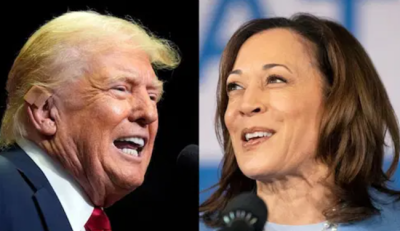Washington Governor Activates National Guard as Election Approaches Amid Fears of Unrest
As the U.S. presidential election looms, the Governor of Washington State, Jay Inslee, has taken steps to prepare for potential election-related unrest by activating the state’s National Guard to be on standby.
This decision follows several incidents that raised concerns over possible disruptions, including the setting ablaze of a ballot drop box in Vancouver, Washington. With early voting well underway, the precautionary move underscores the growing tensions as both local and national officials brace for potential violence related to election activities.

A statement from Governor Inslee’s office, released over the weekend, described the activation of the National Guard as “a purely precautionary measure,” emphasizing that the primary intent is to maintain public order and protect voters as they exercise their democratic rights. Inslee’s decision was further influenced by warnings from the U.S. Department of Homeland Security about nationwide threats to election infrastructure.
The National Guard, typically mobilized for natural disasters and state emergencies, will be on high alert in Washington State from Monday through Thursday, covering Election Day and any immediate aftermath.
This heightened state of preparedness is also a response to a firebombing of a ballot box, an event that occurred in Portland, Oregon. Given these recent incidents, officials hope the National Guard’s presence will act as a deterrent to any potential escalations in unrest.
U.S. Intelligence Agencies Issue Russian Interference Warning
In a parallel development, U.S. intelligence agencies have issued a stark warning regarding efforts by Russia to interfere in the election. Agencies including the Office of the Director of National Intelligence (ODNI), the FBI, and the Cybersecurity and Infrastructure Security Agency (CISA) highlighted specific attempts by Russian influence actors to spread disinformation.

According to their joint statement, Moscow’s disinformation efforts are aimed at casting doubt on the integrity of the election and exacerbating political divisions among Americans.
Among the disinformation flagged by these agencies was a fabricated video suggesting illegal voting by individuals allegedly from Haiti in multiple counties in Georgia, a critical swing state. Another baseless claim involved a video accusing Vice President Kamala Harris and her husband of accepting a $500,000 bribe from musician Sean “Diddy” Combs.
Although the agencies did not elaborate on these claims, reports from U.S. media sources indicate that the videos circulated widely online late last week before being taken down.
Georgia Secretary of State Brad Raffensperger, whose role includes overseeing elections in Georgia, condemned the video, calling it a deliberate act of foreign interference intended to sow discord ahead of the election.
He appealed directly to Elon Musk, the owner of X (formerly Twitter), and other social media leaders to remove the video from their platforms, emphasizing the need to counter disinformation that threatens the electoral process. The anonymous account initially responsible for sharing the video had been linked to previous instances of suspected Russian disinformation.
Supreme Court Dismisses Pennsylvania Republicans’ Suit on Postal Voting Rules
Meanwhile, the U.S. Supreme Court dismissed a lawsuit filed by a group of Pennsylvania Republicans challenging postal voting rules in the battleground state. The suit sought to prohibit the counting of provisional ballots used when a voter’s mail-in ballot is flagged as potentially problematic.
While these provisional ballots are typically set aside for verification before counting, the plaintiffs argued that these votes should not be counted at all, a move that could have led to thousands of absentee votes—frequently leaning Democratic—being invalidated.
With Pennsylvania’s 19 electoral votes at stake, the Supreme Court’s decision has significant implications. As the most populous of the seven swing states, Pennsylvania could determine the outcome of the election.
Although the justices’ ruling allows provisional ballots to be counted for now, they left the door open for further legal challenges post-election. As Election Day approaches, some observers anticipate that disputes over vote validity may continue, especially if the margins between candidates are slim in key states.
Former President Donald Trump, the Republican presidential candidate, has previously raised unfounded claims of election manipulation after his 2020 defeat and has begun questioning the integrity of the current election process. This Supreme Court ruling, while ensuring that votes are counted, may not be the final word as Republicans could revisit the issue if disputes arise.
As the election nears, officials nationwide are preparing for possible unrest and interference. The actions taken by Governor Inslee and warnings from intelligence agencies reflect a proactive approach to ensuring the security and integrity of the electoral process, underscoring the high stakes of the upcoming vote.









